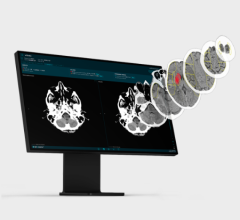
September 18, 2023 — Healthcare organizations across the world are working with poor data. In fact, while high-quality data is a top strategic priority for healthcare leaders, most (80%) don’t fully trust their data. Many companies claim to solve for unreliable data through interoperability and data standardization solutions. But at the end of the day, they are solving an issue that only allows for their product to work. There are no downstream benefits.
Take the example of telecommunications. Today, you can call anywhere around the world, and they can answer the call. But if they don’t speak your language, you will not be able to communicate. Just like in healthcare, DICOM files can be sent, opened, and viewed. But if data is not standardized at the source, other systems cannot understand or use it.
While many healthcare organizations think they are solving their interoperability problems, if they don’t solve the challenge of standardizing the data that flows to all areas of the enterprise, they are not tackling the core issue. This is a critical need that must be addressed for healthcare to move forward.
Downstream issues include:
• Routing data
• Workflow orchestration
• Data monetization internally for improvements
• Data monetization to sell externally
• Reading protocols
• CQI initiatives
• Data lakes
• Research databases
• Billing coding
• Imaging redundance
The journey to tackle the problems of this unreliable medical imaging data begins with adopting innovative solutions that empower healthcare enterprises to provide the highest standard of patient care.
Implementing a data management strategy that streamlines data accessibility and facilitates collaboration among healthcare professionals is crucial and possible with today’s technology. The downstream issues due to inconsistent, unreliable, and incorrect data can be solved with an AI-enabled medical imaging data management tool by Enlitic. This tool, Curie|ENDEX, standardizes DICOM data before it enters the PACS. This allows the high-quality data to make an impact from the start of its journey.
When radiologists utilize hanging protocols that consistently work, they achieve higher efficiency. Additionally, the IT department ensures data routing to the appropriate destinations, reducing bandwidth consumption. Researchers benefit from enhanced searchable data, while billing departments receive alerts for under coding. Physicians can order fewer imaging studies. Healthcare executives gain access to a productive employee system, facilitating data monetization and fostering innovation. As a result of these improvements within the hospital enterprise, patient care experiences significant enhancements.
Healthcare organizations worldwide are faced with the challenges of unreliable data, hindering their ability to provide top-quality patient care. Despite claims of solving the issue through interoperability solutions, the core problem of data standardization remains unaddressed. This critical need must be prioritized for the healthcare industry to progress effectively. Downstream issues, such as data routing, workflow orchestration, and data monetization, further compound the problem. Enlitic offers a game changing solution with Curie|ENDEX, empowering healthcare enterprises to harness high-quality data for meaningful impact. Embracing technology and data standardization is the way forward for healthcare organizations to trust their data and fulfill their mission of delivering the best possible care to patients.
For more information: www.enlitic.co


 February 05, 2026
February 05, 2026 









